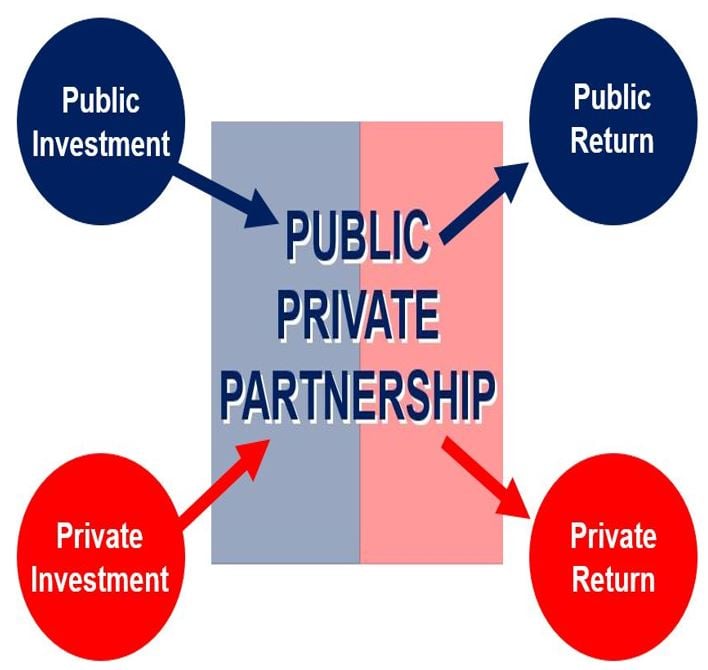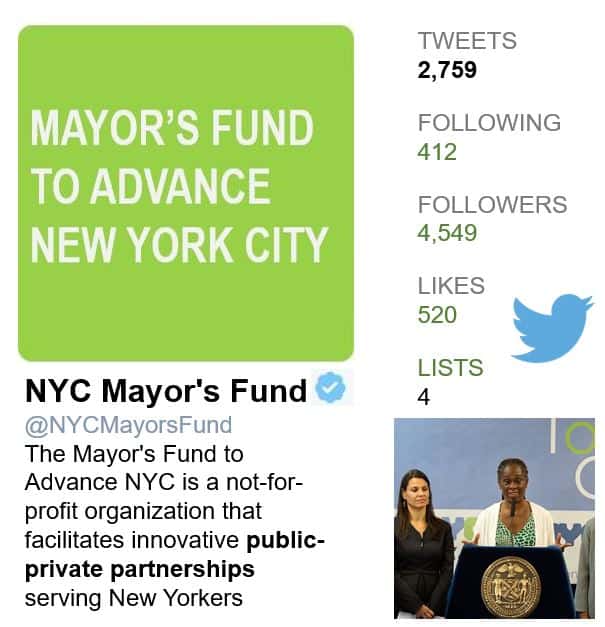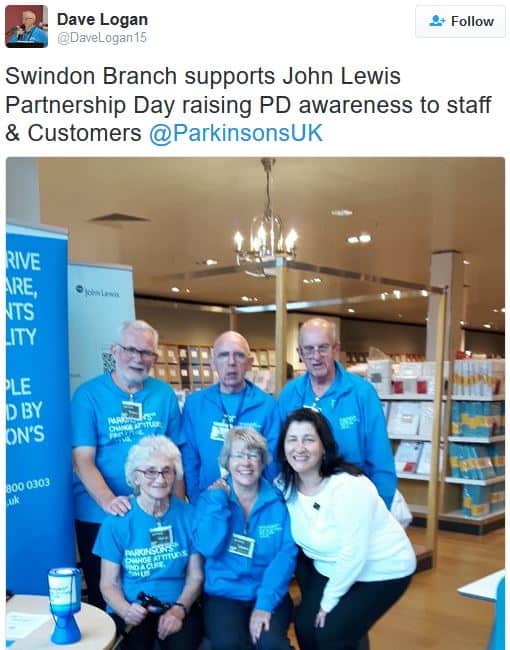By law, a partnership is a relationship formed by the agreement of at least two people to run a business as co-owners. In other words, a partnership is a firm consisting of several owners – each one has invested in the business. In some cases, all the partners are actively involved in the business – they work in it – while in other cases some may be less involved in the running of things, or not at all.
Individuals who have invested in the business but do not work in it are known as limited partners and informally as sleeping partners.
A partnership differs from a corporation in that it is not a separate entity from the owners. Income tax is paid by the partnership, however, the profits and losses are divided up and kept by the partners, depending on how the original agreement was set up. The partners in a partnership do not necessarily have to be just active people, they could be corporations, schools, the government, sleeping partners, churches, etc.
Each partner reports his or her share of business profits or losses on their individual tax return.
Limited partners, usually those who are not directly involved in the management of the business, are generally liable only to the extent of the money they invested in the partnership.
Unlike a corporation or Limited Liability Company, the full partners in a partnership are personally responsible for the businesses’ losses, debts and liabilities. This means that creditors can go after their personal savings and assets, including their homes, in order to get paid.
Individuals can set up a limited partnership or limited liability partnership if they do not want to be personally liable for the business’ losses.
Partner’s do not necessarily have to be people. A Limited Liability Company, for example, counts as a legal entity just like a person, and may also be a partner in a partnership. Governments, schools, universities and interest-based organizations may also be partners.
 Public Private Partnerships are often called PPPs. According to the PPP Kowledge Lab, a PPP is: “A long-term contract between a private party and a government entity, for providing a public asset or service, in which the private party bears significant risk and management responsibility, and remuneration is linked to performance.”
Public Private Partnerships are often called PPPs. According to the PPP Kowledge Lab, a PPP is: “A long-term contract between a private party and a government entity, for providing a public asset or service, in which the private party bears significant risk and management responsibility, and remuneration is linked to performance.”
A partnership can also refer to a type of sponsorship, as occurred last year when British football (US: soccer) club Manchester United announced a multi-year global sponsorship (partnership) deal with Geneva-based Swissquote, an online forex trading company.
A partnership in the United States
In the United States, the federal government has no specific statutory law governing the establishment of a partnership. Each of the country’s states including the District of Columbia has its own statutes and common law governing partnerships.
All the US states mainly follow the general common law principles of partnership whether a limited liability partnership, a limited partnership or general partnership.
A partnership in the United Kingdom
In the United Kingdom, a limited partnership consists of either one of the definitions below:
- One or more people known as general partners. They are liable for all the obligations and debts of the business.
- One or the firm beyond the amount contributed.
Limited partners in the UK may not draw out or receive back any part of the investment they made in the partnership during its lifetime, neither can they take part in the management of the business. Limited partners have no power to bind the firm.
 Many public-private partnerships are established to improve the lives of specific groups of people at city level. According to nyc.gov: “For over twenty years, the Mayor’s Fund to Advance New York City has facilitated public-private collaborations that support the development and emerging needs of the city’s most underserved communities.” (Image: adapted from twitter.com/NYCMayorsFund)
Many public-private partnerships are established to improve the lives of specific groups of people at city level. According to nyc.gov: “For over twenty years, the Mayor’s Fund to Advance New York City has facilitated public-private collaborations that support the development and emerging needs of the city’s most underserved communities.” (Image: adapted from twitter.com/NYCMayorsFund)
Partner compensation
In some types of partnerships, particularly accountancy or law firms, equity partners are different from contract partners (salaried partners).
An equity partner, unlike a salaried partner, has an underlying ownership interest in the firm and is entitled to a proportion of the distributable profits of the partnership. The salaried partner, as the name implies, receives a salary but does not share in the distributions of the firm. Salaried partners may receive a bonus based on the business’ profitability.
In general, equity partners enjoy a fixed share – usually but not always an equal share – along with the other partners.
In more sophisticated partnerships, different models may exist for determining proportion, type of ownership and/or profit distribution. Two common forms are eat-what-you-kill or lockstep compensation.
 Giant retailer John Lewis Partnership is probably the most successful example of a partnership in the United Kingdom, with revenue of £9.5 billion and 88,700 employees. (Image: twitter.com/DaveLogan)
Giant retailer John Lewis Partnership is probably the most successful example of a partnership in the United Kingdom, with revenue of £9.5 billion and 88,700 employees. (Image: twitter.com/DaveLogan)
Eat-what-you-kill is used virtually exclusively by law firms. Each of the firm’s partners receives a share of the partnership’s profits up to a specific amount, with any additional profits going to the partner who brought in the business, i.e. who was responsible for the ‘origination’ of the work that generated the income and thus the profit.
Lockstep is a type of grading system, where somebody may start off as a junior partner with a certain number of points, and accumulates more points as time passes until he or she reaches a set maximum, often called a plateau. The person who reaches the highest partner status is often referred to as a senior partner.
How long it takes to reach the maximum is described in the lockstep – a seven-year-lockstep means it will take a new partner seven years to hit the plateau.
Eat-what-you-kill law firms are more common in the United States, while UK firms tend to use the lockstep principle.
When American law firm Rogers & Wells merged with UK firm Clifford Chance, overcoming the difficulties of merging a eat-what-you-kill culture with a lockstep one was especially challenging.
Famous partnerships
Below are listed some famous businesses that either started off as partnerships or continue as such today.
– Warner Bros: the founders were pioneering figures in the movie industry. They introduced sound to movies and revolutionized musical films. Founded in 1923 in Culver City, California, USA.
– Hewlett Packard: the partnership was founded in a small garage in Palo Alto, California, in 1939. The firm has since gone on to become a PC manufacturing giant. Hewlett and Packard’s first successful product was an audio oscillator, which Walt Disney snapped up for the movie theatre surround sound systems it designed for its famous musical cartoon Fantasia.
– John Lewis Partnership: a British employee-owned retailer that operates the John Lewis department stores, as well as Waitrose supermarkets. It also offers banking, financial and other retail-related services. The business has more than 88,000 employees. Founded in Oxford Street, London, UK, by John Spedan Lewis in 1929.
– McDonald’s: founded by partners Richard and Maurice McDonald in 1940 in San Bernadino, California, USA. Ray Krok joined the team in 1995 and later bought the company from the brothers, founding the McDonald’s Corporation. Today is has restaurants in 119 nations.
– Microsoft: founded by Bill Gates and Paul Allen. It was officially established in 1975 when Allen invented the company name by combining two words – microcomputer and software. Today it is a leading software maker and one of the world’s most valuable companies.
– Apple: founded by Steve Jobs and Steve Wozniak in Cupertino, California, USA, in 1976. You just have to look at the effect Jobs’ death had globally to appreciate the historical importance of this partnership. When the partnership was set up, Jobs looked after marketing while Wozniak dealt with the technical side of things.
– Google: founded by Sergey Brin and Larry Page in 1998 in Mountain View, California. The company today is the world’s leading search engine.
– Twitter: founded by Evans Williams, Jack Dorsey and Biz Stone in 2006. The firm has grown rapidly and today has more than 500 million active registered users who tweet on average 58 million messages per day.
– PricewaterhouseCooper (PwC): a multinational professional services network based in London, UK. The result of a merger between Price Waterhouse (est. 1854) and Coopers & Lybrand. It operates in 157 countries in 756 locations, with more than 208,000 people. Member firms have a variety of legal structures – both US and UK firms are actually limited liability partnerships.
Quotes using the word ‘Partnership’
“Public-Private Partnership in financing, service delivery and provision of workspaces and training of trainers must be promoted to meet the demand and supply gap in the field of skill development,” (Pallam Raju – an Indian politician, former Union Minister for Human Resources Development in the Central Government)
“Financial institutions, the corporate world and civil society – all must uphold high standards of probity in their working. Only a genuine partnership between the Government and its people can bring about positive change to create a just society,” (Pratibha Patil – President of India from 2007 to 2012)
“No partnership between two independent companies, no matter how well run, can match the speed, effectiveness, responsiveness and efficiency of a solely owned company,” (Edward Whitacre, Jr. – Former Chairman and CEO of General Motors and AT&T Inc.)
“Friendship is essentially a partnership,” (Aristotle, born 384 BC, died 322 BC – a Greek philosopher and scientist)
“A man who graduated high in his class at Yale Law School and made partnership in a top law firm would be celebrated. A man who invested wisely would be admired, but a woman who accomplishes this is treated with suspicion,” (Barbra Streisand – an American singer, songwriter, actress, and filmmaker)
“And humility in politics means accepting that one party doesn’t have all the answers; recognising that working in partnership is progress not treachery,” (Vince Cable – a British politician, former Secretary of State for Business, Innovation and Skills)
“The Declaration on Strategic Partnership between India and Russia signed in October 2000 became a truly historic step. The developments in the first decade of the 21 century confirmed that it was a particularly significant and timely step,” (Vladimir Putin – President of the Russian Federation)
